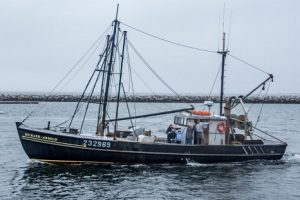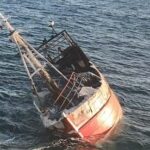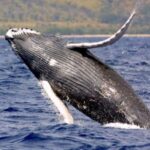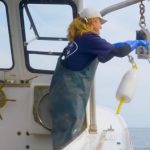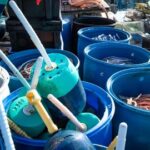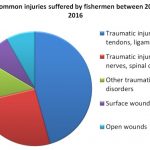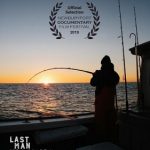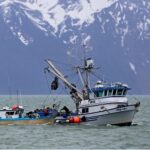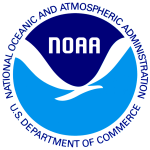Tag Archives: Andrew Pershing

Warming waters, local differences in oceanography affect Gulf of Maine lobster population
Two new studies published by University of Maine scientists are putting a long-standing survey of the American lobster’s earliest life stages to its most rigorous test yet as an early warning system for trends in New England’s iconic fishery. The studies point to the role of a warming ocean and local differences in oceanography in the rise and fall of lobster populations along the coast from southern New England to Atlantic Canada. >click to read< 12:36
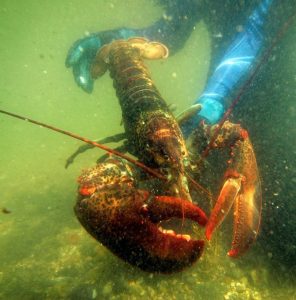
Maine’s lobster population will drop but fishery ‘not doomed’
The lobster population in the Gulf of Maine could decline by nearly two-thirds by 2050, according to a scientific study released this week. As bad as that sounds, scientists and industry representatives say the demise of the most valuable single-species fishery in the country is unlikely. “It doesn’t mean Maine’s lobster fishery is doomed,” said Andrew Pershing, chief scientific officer at Gulf of Maine Research Institute and a co-author of the study. >click here to read< 10:17
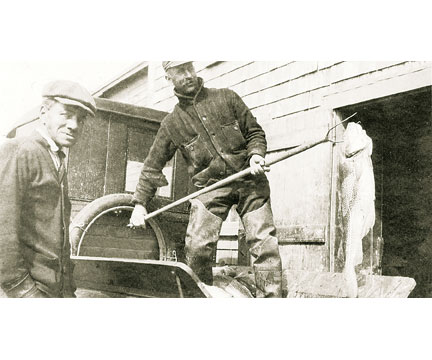
Could the Gulf of Maine’s Ground Fishery Rebound?
“The English had discovered living resources that would attract, shape, and sustain the communities of the coast of Maine for the next four centuries,” wrote journalist and historian Colin Woodard of the bounty that once existed in the Gulf of Maine in the 17th century in his book “The Lobster Coast.” “Early explorers were flabbergasted by the largesse of the Gulf of Maine, a semienclosed sea stretching from Cape Cod to Nova Scotia. They saw great pods of whales, acres of thrashing tuna, vast schools of salmon, herring and mackerel, clouds of puffins and terns, shoals of mussels and oysters, vast mudlfats infested with fat clams, cod and haddock biting at the hook, and enormous lobsters foraging in the rockweed. The waters off England and France seemed barren by comparison.” As Woodard noted, the geology and climate of the Gulf of the Maine with its 7,500-mile coastline made the area perfectly suited for a thriving fishery — a “fertile oasis in a world ocean that is, ecologically speaking, largely desert.” click here to read the story 09:27
Warmer Gulf of Maine clobbering the cod
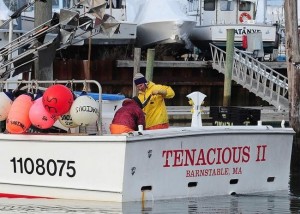 Desperate measures have been taken, cod quotas have been slashed again and again, and yet fish numbers continue to slide. Now, a new study by the Gulf of Maine Research Institute suggest the Gulf’s warming waters have led to the collapse of the fishery and recovery depends “as much on temperature as it does on fishing.”,, But if is the prime culprit, not over zealous fishermen, what more can be done on a local level? Andrew Pershing, “Our work suggests that had temperature been factored in,,,” Read the article here 09:18
Desperate measures have been taken, cod quotas have been slashed again and again, and yet fish numbers continue to slide. Now, a new study by the Gulf of Maine Research Institute suggest the Gulf’s warming waters have led to the collapse of the fishery and recovery depends “as much on temperature as it does on fishing.”,, But if is the prime culprit, not over zealous fishermen, what more can be done on a local level? Andrew Pershing, “Our work suggests that had temperature been factored in,,,” Read the article here 09:18
A fisherman’s doubt, and his love of the sea
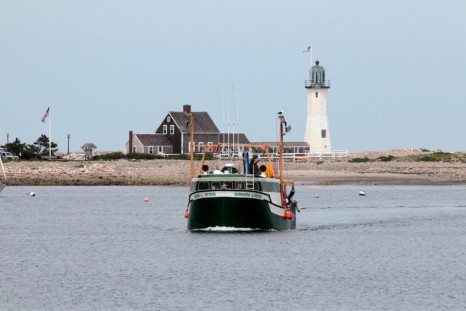 He is up before the dawn, and, a creature of steady habits, he heads for the seashore. It’s dark when Frank Mirarchi jumps into his black pickup truck, and dark still when he reaches Scituate Harbor. He parks on the town pier and stares at the ocean. But his 55-foot stern dragger is no longer moored there. Actually, the boat is there. But it’s no longer his. It was renamed last June after he sold it — a poignant punctuation point to Mirarchi’s half-century career as a commercial fisherman. Read the rest here 15:01
He is up before the dawn, and, a creature of steady habits, he heads for the seashore. It’s dark when Frank Mirarchi jumps into his black pickup truck, and dark still when he reaches Scituate Harbor. He parks on the town pier and stares at the ocean. But his 55-foot stern dragger is no longer moored there. Actually, the boat is there. But it’s no longer his. It was renamed last June after he sold it — a poignant punctuation point to Mirarchi’s half-century career as a commercial fisherman. Read the rest here 15:01
Scientists: Warming ocean factor in collapse of Gulf of Maine cod fishery
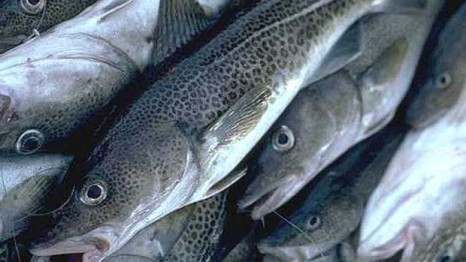 The scientists behind the Science report say the warming of the Gulf of Maine, which accelerated from 2004 to 2013, reduced cod’s capacity to rebound from fishing pressure. The report gives credence to the idea — supported by advocacy groups, fishing managers and even some fishermen — that climate change has played a role in cod’s collapse. The lead author of the study, Andrew Pershing of the Gulf of Maine Research Institute in Portland, said the gulf is warming at a rate 99 percent faster than anywhere else in the world, and as a result, too many of the fish aren’t living past age 4. Cod can live to be older than 20. Read the rest here 07:58
The scientists behind the Science report say the warming of the Gulf of Maine, which accelerated from 2004 to 2013, reduced cod’s capacity to rebound from fishing pressure. The report gives credence to the idea — supported by advocacy groups, fishing managers and even some fishermen — that climate change has played a role in cod’s collapse. The lead author of the study, Andrew Pershing of the Gulf of Maine Research Institute in Portland, said the gulf is warming at a rate 99 percent faster than anywhere else in the world, and as a result, too many of the fish aren’t living past age 4. Cod can live to be older than 20. Read the rest here 07:58
Warming waters a major factor in the collapse of New England cod, study finds
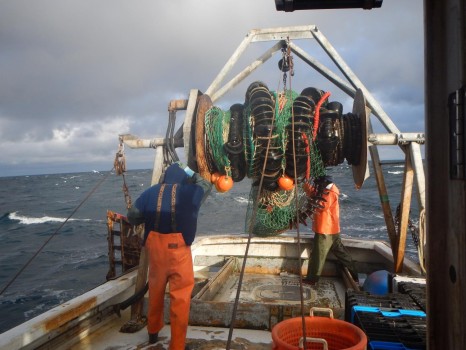 Pershing and colleagues from GMRI, the University of Maine, Stony Brook University, the Bigelow Laboratory for Ocean Sciences, and NOAA’s Earth System Research Laboratory, including the Cooperative Institute for Research in Environmental Sciences at the University of Colorado Boulder, found that increasing water temperatures reduce the number of new cod produced by spawning females. Their study also suggests that warming waters led to fewer young fish surviving to adulthood. Read the rest here 18:04
Pershing and colleagues from GMRI, the University of Maine, Stony Brook University, the Bigelow Laboratory for Ocean Sciences, and NOAA’s Earth System Research Laboratory, including the Cooperative Institute for Research in Environmental Sciences at the University of Colorado Boulder, found that increasing water temperatures reduce the number of new cod produced by spawning females. Their study also suggests that warming waters led to fewer young fish surviving to adulthood. Read the rest here 18:04

































